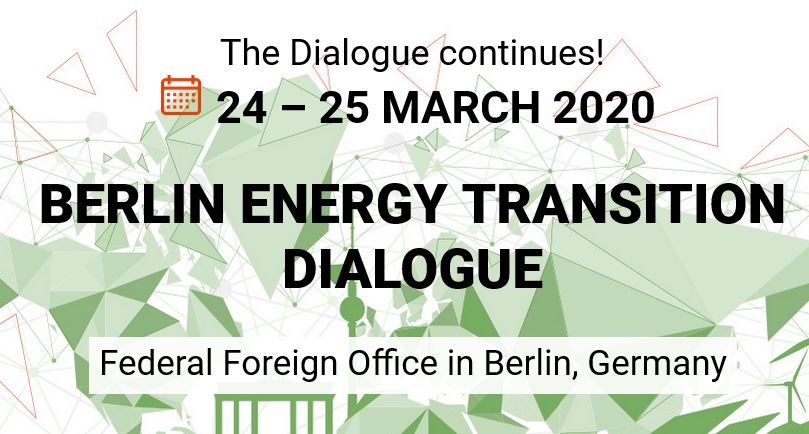Germany Boost Support for Energy Transition, Set to Host BETD 2020
By Ndubuisi Micheal Obineme
Today, over 20 years after reunification, The Federal Republic of Germany is making giant strides to increase its support for renewable energy. The country has been innovative and focusing on renewables as its major source of energy supply.
Out of the 44 countries in Europe, Germany is the largest economy in the European Union (EU) and the fourth largest in the world after the USA, China, and Japan.
However, Berlin, its capital, will be hosting the 6th Berlin Energy Transition Dialogue (BETD) scheduled to take place on 24 – 25 March 2020, at the Federal Foreign Office in Germany.
BETD is an international event that attracts industry stakeholders of the energy sector, high-level policymakers, science, and civil society, which are also allowed to share their experiences and ideas on a safe, affordable and environmentally responsible global energy transition.
The conference attracts more than 2,000 participants from over 90 countries, including 50 ministers and state secretaries and more than 100 high-level speakers, exchanging on investment flows, system integration or long-time scenarios against the backdrop of dynamic innovation and the digital transformation.
The conference explores the opportunities and challenges resulting from the global shift to green energy, geopolitical developments and success stories for the energy transition.
German Foreign Minister Heiko Maas said: “The energy transition is not merely a shift from fossil fuels to renewable energy. It is also upending political constants. Using renewable energy enables states to improve their energy security. So energy is losing its potency as the geopolitical instrument we have known for decades. Countries that are transforming their energy economy can be more independent in pursuing their strategic and foreign-policy interests. This is just one of the aspects we want to talk about at the Berlin Energy Transition Dialogue.”
Federal Minister for Economic Affairs and Energy Peter Altmaier commented: “A successful energy transition needs to be conceived globally and holistically. A holistic approach requires the energy shift to be successful in all sectors and the socio-economic elements to be taken into account throughout. Continuing international cooperation is indispensable here. That is why decision-makers from across the world are gathering for the Berlin Energy Transition Dialogue, to identify best practices and thus make an efficient, rapid energy transition possible.”
In his words, President of the German Renewable Energy Federation Dr. Simone Peter said: “The energy transition is a successful model which is attracting increasing international attention. Thanks to technological developments and innovations, the renewable energy sector has made a substantial contribution both nationally and globally to reducing costs and thus enhancing competitiveness. A huge range of tried-and-tested technologies is being used in more and more countries to facilitate clean energy supplies and create prosperity while protecting resources and the climate. Only a combination of economy and ecology is sustainable. Renewable energies are the key here.”
The Berlin Energy Transition Dialogue is hosted by the Federal Government and organized together with the German Renewable Energy Federation (BEE), the German Solar Industry Association (BSWSolar), the German Energy Agency (Dena) and the consultancy firm eclareon.
For more information about the event, please visit https://2020.energydialogue.berlin/



